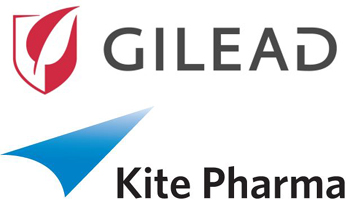Gilead, the developer of blockbuster hepatitis C and HIV treatments, said Monday it has agreed to acquire immunotherapy company Kite Pharma for $11.9 billion later this year, adding a next-generation cancer treatment to its portfolio.
Gilead will pay $180 per share for Kite, the company said Monday.
The acquisition signals a significant move for the California-based biotech company that is looking towards cancer immunotherapies as the next big growth engine.

Gilead has since 2013 relied on its blockbuster hepatitis drugs as the primary source of revenue after acquiring hep C drug developer Pharmasset for $11 billion in 2011.
Gilead had reportedly generated $30.39 billion in sales last year, with 48.7 percent stemming from hep C treatment sales.
However, the hepatitis C market has since seen fierce competition and falling prices that resulted in Gilead experiencing a $ 4 billion reduction in sales this year compared to a year earlier.
■ Related : Gilead’s hepatitis B therapy to vie with 20 Korean therapies
Industry insiders have long expected Gilead, which had recorded having $32 billion in cash assets at the end of 2016, to use its funds to invest in a new area.
Kite Pharma is a leading immunotherapy company, well-known for developing chimeric antigen receptor T-cell (CAR-T) therapy that reengineers a patient’s white blood cells to attack cancer cells.
Kite has been in the race to develop CAR-T therapies with other pharmaceuticals such as Novartis, Juno Therapeutics, and Bluebird bio. Its CAR-T drug is currently under priority review by the U.S. Food and Drug Administration.
Industry experts expect the therapy to be the first to market to treat refractory aggressive non-Hodgkin lymphoma.
“The acquisition of Kite establishes Gilead as a leader in cellular therapy and provides a foundation from which to drive continued innovation for people with advanced cancers,” said Gilead’s President and Chief Executive Officer John F. Milligan. “We are greatly impressed with the Kite team and what they have accomplished, and share their belief that cell therapy will be the cornerstone of treating cancer.”

